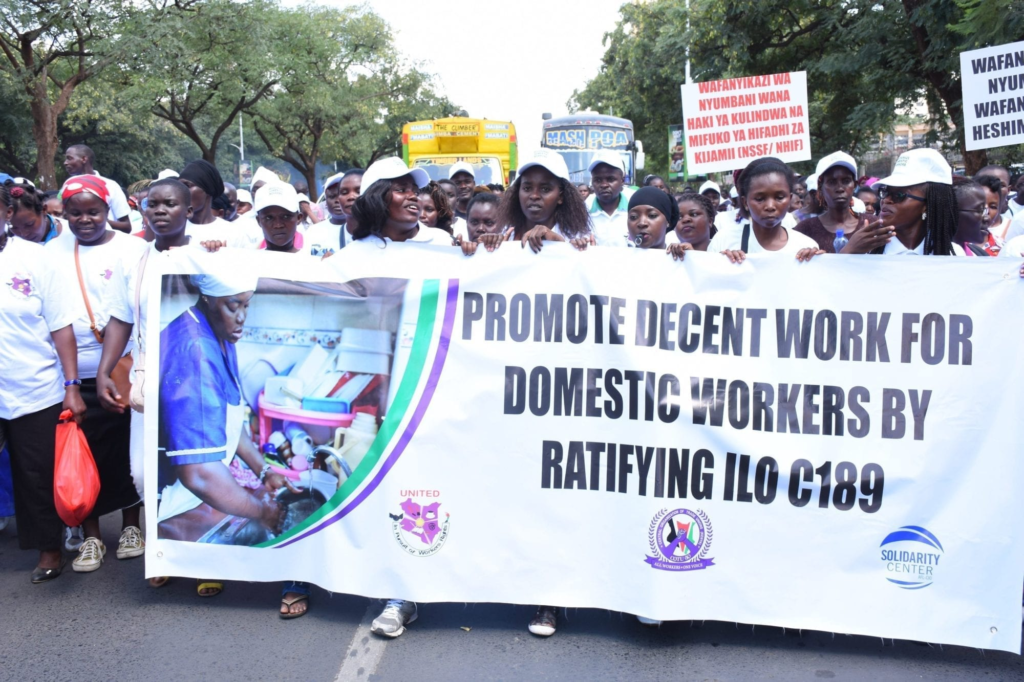
| Gichuiya Nancy |
These celebrations serve as a platform for recognition, solidarity, and advocacy. Typically held annually or during special occasions like Labor Day, these gatherings are crucial for fostering a sense of unity and addressing common challenges.

During these celebrations, domestic workers share stories of resilience and success. They talk about their daily experiences, from the challenges of balancing multiple households to the joys of building lasting relationships with the families they serve. These stories highlight their dedication and the vital role they play in the households they work in.
One of the central topics discussed is labor rights and protections. Domestic workers in Kenya frequently advocate for fair wages, decent working conditions, and access to social security benefits. They discuss strategies for negotiating contracts, handling disputes, and seeking legal recourse when their rights are violated.
Healthcare and occupational safety are also prominent concerns. Domestic workers often discuss the need for affordable healthcare services and workplace safety measures. They share information about their rights to a safe working environment and strategies for staying healthy while managing demanding work schedules.
Educational opportunities for domestic workers and their children are another key discussion point. Many share stories of pursuing further education or vocational training while working, highlighting the importance of continuous learning and skill development.
Cultural preservation and identity are also important themes. Domestic workers celebrate their diverse cultural backgrounds through music, dance, and traditional cuisine. They discuss the challenges of maintaining cultural practices while living and working in urban areas far from their hometowns.
Financial literacy workshops are often organized during these celebrations. Domestic workers exchange tips on budgeting, saving, and investing their earnings wisely. They discuss the importance of financial independence and planning for future goals, such as homeownership or starting their own businesses.
Advocacy for gender equality and empowerment is another significant aspect of these gatherings. Domestic workers discuss strategies for challenging gender stereotypes and promoting equal opportunities within their profession and society at large. They celebrate achievements in breaking down barriers and empowering women in traditionally undervalued occupations.
Networking and building support networks are crucial outcomes of these celebrations. Domestic workers connect with peers, share resources, and form alliances to address common challenges collectively. They discuss the importance of solidarity and mutual support in advocating for their rights and improving working conditions.
The impact of technology on domestic work is a modern concern discussed during these celebrations. Workers exchange experiences with digital platforms used for job searching, scheduling, and communication. They discuss the benefits and challenges of technology in their profession, including concerns about privacy and fair treatment.
Lastly, celebrations often include workshops on personal development and self-care. Domestic workers learn techniques for managing stress, improving communication skills, and asserting their rights assertively. They discuss the importance of self-care and mental well-being while balancing demanding work responsibilities.
In summary, domestic workers’ celebrations in Kenya are vibrant gatherings where issues of labor rights, healthcare, education, cultural preservation, financial literacy, gender equality, technology, and personal development are discussed passionately. These events not only celebrate their contributions but also empower them to advocate for better working conditions and opportunities within their profession and society.




